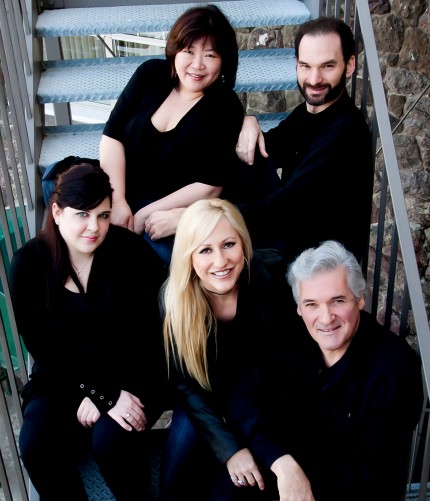Zukerman ChamberPlayers offer emotionally charged Shostakovich at Ravinia

The classical season at the multi-genre Ravinia Festival doesn’t begin in earnest for a couple more weeks when the Chicago Symphony Orchestra opens their summer stand in July.
Still there are a few classical nuggets sprinkled among Ravinia’s current pop and retro-rock offerings, such as the Zukerman ChamberPlayers who performed Tuesday night at the Martin Theatre.
For all his fame, celebrity and sterling musicianship, Pinchas Zukerman can be a maddeningly frustrating stage personage. When playing concertos with orchestra—as in his Brahms performance with Riccardo Muti and the CSO last March—Zukerman often plays with a lack of engagement and Olympian detachment that seem almost willfully perverse.
These days it is chamber music that seems to find Zukerman in his most engaged and consistent form, and such was the case in the emotionally committed performance of Shostakovich’s Piano Quintet Tuesday night.
Written in the bleakest year of World War II, the Russian composer’s 1940 quintet piercingly reflects the stark, unsettled times with its jumbled anxious mix of brooding meditation and nervous energy.
From Angela Cheng’s firmly projected keyboard statement, Zukerman and colleagues (cellist Amanda Forsyth, violinist Jessica Linnenbach, violist Jethro Marks and pianist Cheng) were fully in synch with the dark expression, caustic irony and acidic edge of this music. The solemn melancholy of the Adagio was especially manifest with spare, withdrawn playing by Zukerman and Linnenbach, and a fluid buildup in intensity to the movement’s climax. The Scherzo provided contrast with just the right jocular unsettled energy.
Only the Intermezzo failed to come off. While sensitively played by all. Zukerman’s glossy violin solo didn’t feel much like a plaintive voice in the wilderness nor did the coda provide the requisite sense of catharsis. The playing of violist Jethro Marks was burnished in tone, eloquent and tasteful throughout, however, and the wryly ironic closing Allegretto nicely etched the deceptively lighthearted coda.
The rather miserly program began with Brahms’ Piano Quartet in C minor. The least often heard of the composer’s three works in the genre, the moods are more equivocal here, though Brahms’ characteristic autumnal lyricism and energy are consistently palpable.
The Zukerman ChamberPlayers (yes, there is no space) gave a solid, dynamic performance, judging the ebb and flow of the opening Allegro skillfully though without quite capturing the elusive qualities of this challenging work. The ensemble’s alert, close-knit playing was often admirable though at times one wanted clearer textures in tuttis and piano playing of greater sonorous heft from Cheng.
If Zukerman and Forsyth’s wide vibrato flirted with sugary sentimentality in the Andante, Marks once again was terrific, provided eloquent and tasteful playing, with his dark woody tone and technical poise.
Note: Ravinia’s glossy program manages to include the names of every member of the backups bands for Ronnie Milsap, Sergio Mendes and Colbie Caillat but failed anywhere to list the names of the four musicians performing with Zukerman Tuesday night, including that of Amanda Forsyth, his wife.
Posted in Performances




